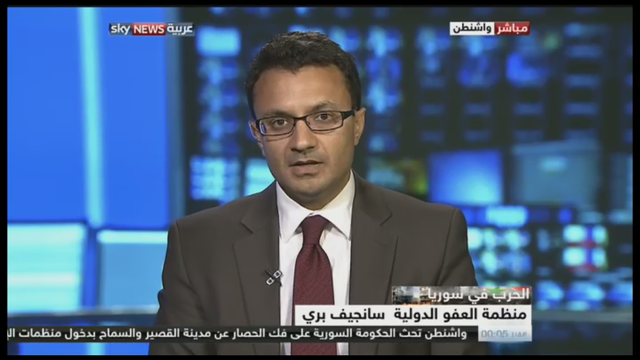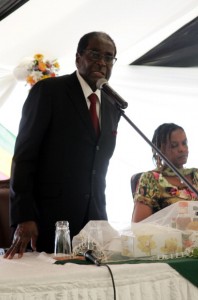This is the first edition of Human Rights Flashpoints, a weekly column about countries at risk of escalating human rights violations.
SUDAN—Abyei decision and border skirmish with Chad
Tensions are rising in South Sudan. Both northerners and southerners in Sudan are awaiting the final ruling of the Permanent Court of Arbitration in The Hague on the boundaries of Abyei, which will come on Wednesday. The borders of Abyei were one of the most sensitive issues left undecided in the 2005 Comprehensive Peace Agreement (CPA), which ended the civil war between the North and the South. The BBC reports that the verdict is seen as a key test of the peace process. U.N. Special Representative Ashraf Qazi accused South Sudan over the weekend of having soldiers in Abyei but said he was “reassured” on Monday when the army took steps to withdraw its soldiers.
In a separate development, Sudan referred Chad to the U.N. Security Council on Monday, after the Sudanese army accused Chad of launching an air raid and attacking west Darfur district with two planes on Thursday. Khartoum claims that this is the fourth raid N’Djamena has carried out in Sudan in two months. Reuters reports that Sudan is claiming France, a permanent member of the Security Council, is supporting Chad’s attacks in Sudan.
Must Reads
Overheard
“All these armed groups must be immediately withdrawn to outside the area, and.. the international community [is] closely monitoring the situation in and around Abyei and expects all sides to behave in the most responsible manner in order to avoid violence.”
Ashraf Qazi, U.N. Special Representative for Sudan, July 18, 2009.
“While the members of the international community will be on hand in Abyei to witness the announcement of the panel’s decision and to assist as appropriate with its implementation, it will ultimately be the responsibility of the two parties to ensure lasting peace, stability and security in Abyei, as well as continued implementation of the CPA.”
Ian Kelly, U.S. Department of State Spokesman, July 14, 2009.
IRAN—Call for referendum and Global Day of Action
While we can expect major protests around the world this weekend, the situation in Iran remains tense. Former Iranian President Mohammed Khatami has called for a national referendum on the legitimacy of the current government in light of last month’s electoral uprising. Khatami was quoted as saying:
“The only way out of the current situation is to hold a referendum. People should be asked whether they are happy with the current situation … If the vast majority of people are happy with the current situation, we will accept it as well.”
This call joins a long string of challenges to the Supreme Leader Ayatollah Khameini’s demand that Mahmoud Ahmedinejad be accepted as the president of the Islamic Republic. Mir Hussain Mousavi, Ahmedinejad’s main opponent during the election cycle, also released a statement yesterday insisting on the immediate release of detained protesters while also laughing off the supposed role of foreign powers during the uprising.
To date, at least 20 people have been killed during the violent protests following the June 12 election. Hundreds of others, including politicians, journalists, and activists have been arrested and detained by police.
A Global Day of Action to demonstrate support for the civil rights movement in Iran has been planned by major human rights organizations, including Amnesty International, for this Saturday, July 25. To find events in your area, visit United4Iran.org for a complete listing.
Must Reads
Overheard
“Durability of order and continuation of the country’s progress hinge on restoring public trust. From the start, we said there is a legal way to regain that trust. I openly say now that the solution to get out of the current crisis is holding a referendum.”
Mohammed Khatami, former Iranian President, July 20, 2009
“Neither the president nor I have any illusions that direct dialogue with the Islamic Republic will guarantee success. But we also understand the importance of trying to engage Iran and offering its leaders a clear choice: whether to join the international community as a responsible member or to continue down a path to further isolation…. The time for action is now. The opportunity will not remain open indefinitely.”
Hillary Clinton, U.S. Secretary of State, July 15, 2009
“We’ve got some fixed national security interests in Iran not developing nuclear weapons, in not exporting terrorism, and we have offered a pathway for Iran to rejoining the international community.”
Barack Obama, July 11, 2009
Coming This Week
- July 21: Presidential Task Forces on the War on Terror Fail to Meet Deadlines
- July 21/22: Global Day of Action for the people of Gambia
- July 21: Amnesty International USA 4:30pm rally at the Gambian embassy in Washington, DC to protest human rights abuses
- July 22: Permanent Court of Arbitration in the Hague will issue a ruling on the boundary and status of Abyei, territory that lies at the juncture of South Sudan, North Sudan, and Darfur
- July 22: Negotiations to resolve the crisis in Honduras to resume in San Jose, Costa Rica
- July 25: Global Day of Action for Iran
- Keep an eye out later on this week for a rebuttal to Khatami and Mousavi’s proposed referendum on the legitimacy of Mahmoud Ahmedinejad’s government
Juliette Rousselot and Samah Choudhury contributed to this post
Human Rights Flashpoints is a weekly column about countries at risk of escalating human rights violations and is brought to you by AIUSA’s Crisis Prevention and Response Campaign.


 The
The 
